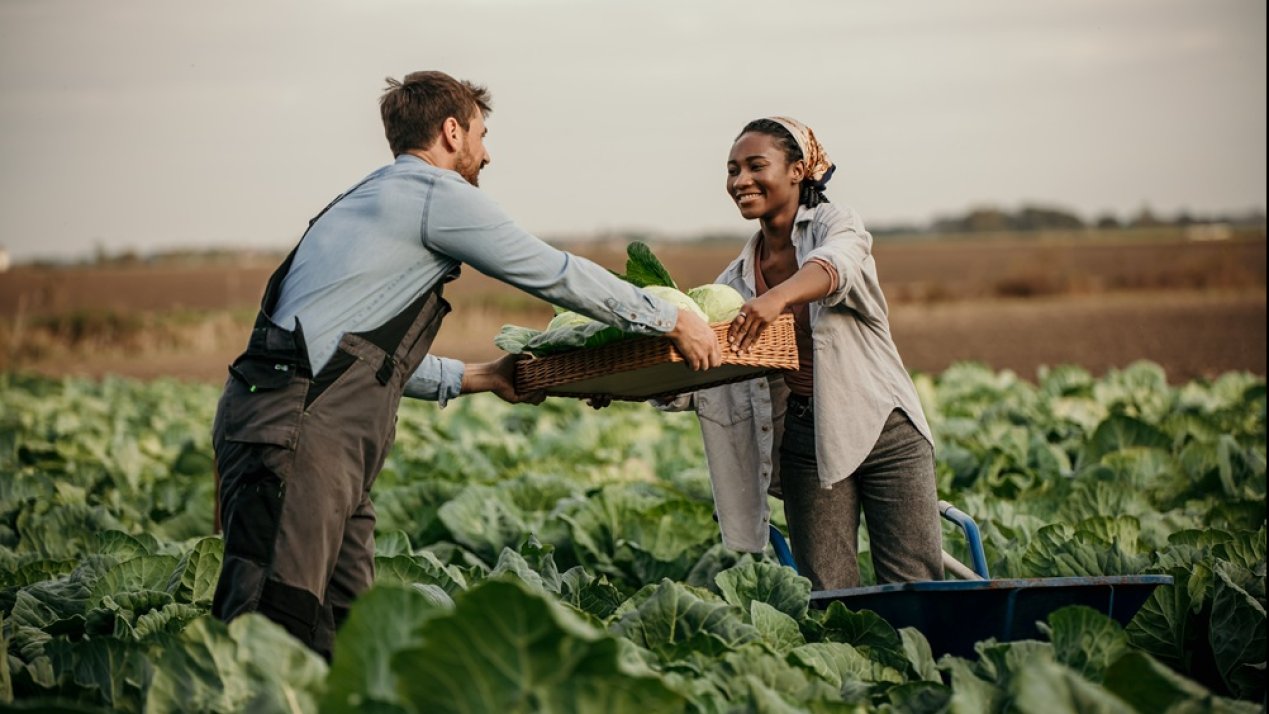Mexico is strengthening its transition to sustainable agriculture through public policies, international cooperation and targeted support to small-scale producers to reduce deforestation, improve rural livelihoods and increase climate resilience.
Araceli Vargas Mena, director of the Sustainable Agriculture Project at the German Society for Technical Cooperation (GIZ), emphasized that Mexico has a strong policy framework to promote ecological practices and significant synergies between environmental and agricultural agendas to ensure that food production does not lead to deforestation.
“Mexico stands out as a pioneering country in Latin America in developing public policies aimed at transitioning to more sustainable agricultural and food systems,” she said during her participation in Milenio Foros Agroindustria Inclusiva.
Mena explained that GIZ's role as a strategic ally of the Mexican government focuses on working directly with the Ministry of Agriculture and Rural Development (SADER) and state governments to develop policies that support producers in adopting sustainable practices.
“Our work focuses on supporting the creation of public policies that help producers adopt more sustainable practices so that we as a country can transition to more sustainable agricultural and food systems,” she said.
The Vida y Campo (Life and Field) project, implemented since May 2022 in collaboration with GIZ, aims to support, with a comprehensive approach, small-scale producers and rural organizations involved in key production systems such as indigenous corn, mezcal agave, coffee, cocoa, honey, and goat and sheep livestock in the states of Puebla and Oaxaca.
Key outcomes of this alliance include: disseminating technical innovations and strengthening strategic capacities to improve the climate and economic resilience of rural communities; Raise awareness of the value of ecosystem services from agriculture and livestock, as well as the importance of soil, water and biodiversity; training for more than 4,200 producers; Support for the development and integration of public policies for more sustainable agricultural and food systems; and promoting digital transformation through platforms, systems analytics and tools that improve access to and use of information. The project is expected to be completed this month.
Mena stressed that one of the main priorities for promoting sustainable agriculture is improving existing financial instruments in the country. She stressed that both national and local governments need to develop public policies, incentives and financing mechanisms to ensure rural development with better living conditions. To achieve this, GIZ works with the Agricultural Trust Funds (FIRA) to ensure that loans, subsidies and bonds are not only accessible, but also take into account criteria for sustainable agriculture, promote the inclusion of women and youth and support marginalized or resource-poor areas.
Regarding the active participation of women in agriculture, Penélope García, Marketing Director for North Latin America at Bayer's Crop Science Division, explained that it is not only about equity, but also about efficiency and sustainability. When women had access to information and technology, they not only improved their crops but also strengthened the resilience of their communities. Inclusion is therefore fundamental to the effective functioning of the entire system.
Mena also identified three key concerns to achieve crop recovery and food security: adopting practices that prevent or minimize soil erosion; promoting efficient irrigation techniques to combat water scarcity, particularly during periods of drought; and consistent with the Federal Government's efforts to reduce and eliminate the use of highly toxic agrochemicals and replace them with less harmful biological substances. “All of this is linked to biodiversity protection and climate change. We need to develop good practices that allow agriculture to adapt to this new reality,” she concluded.
